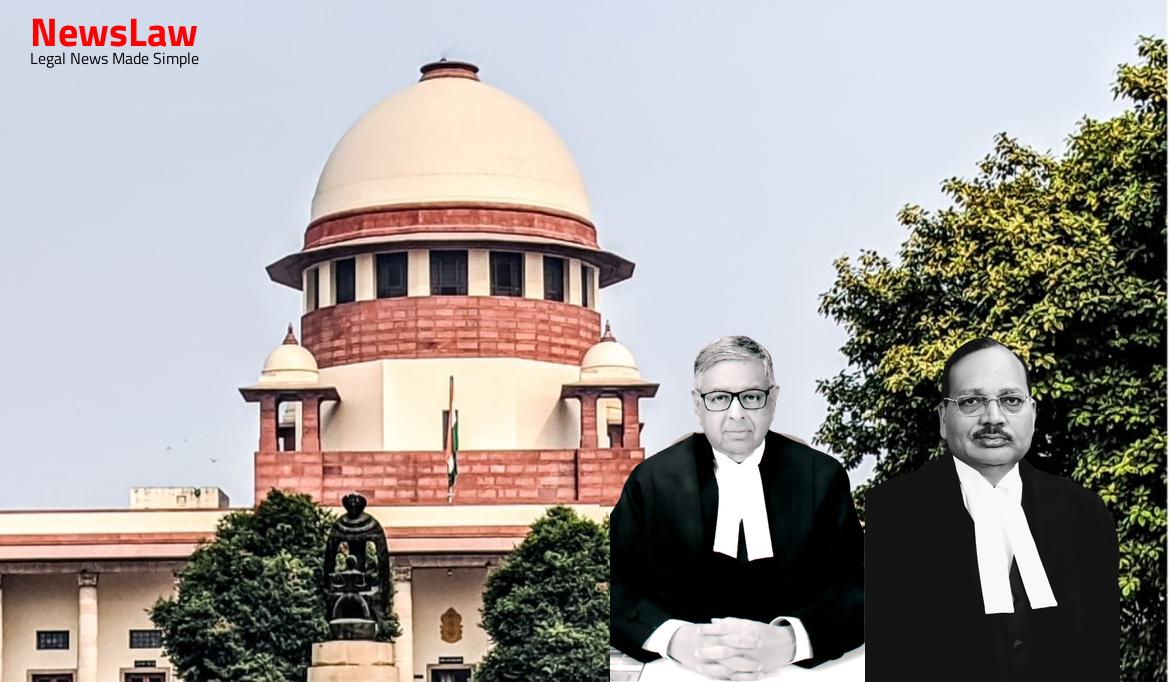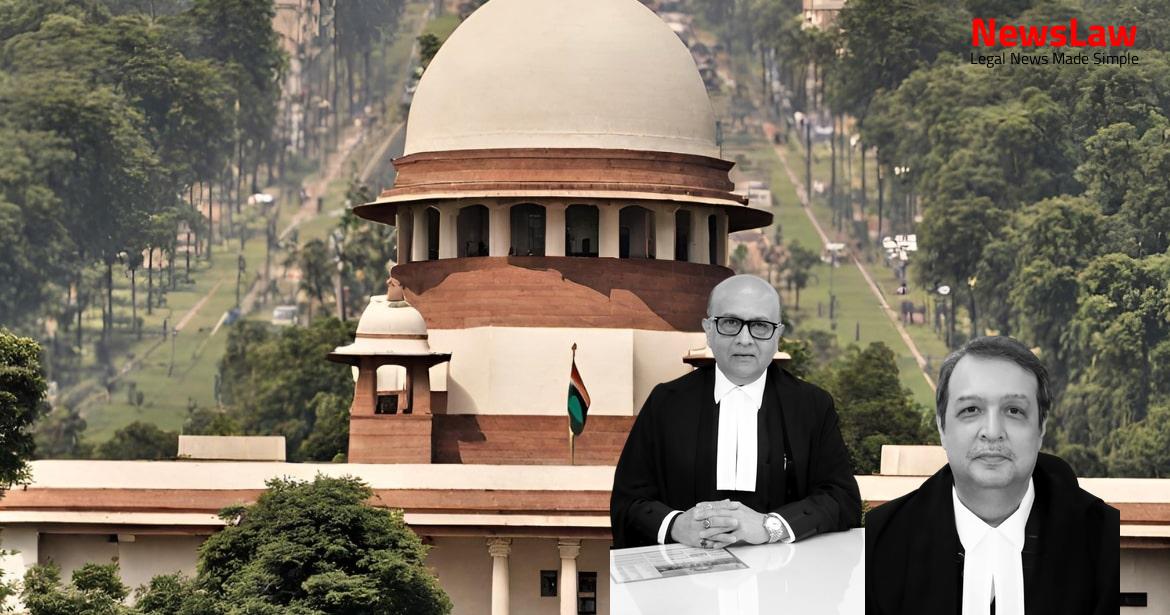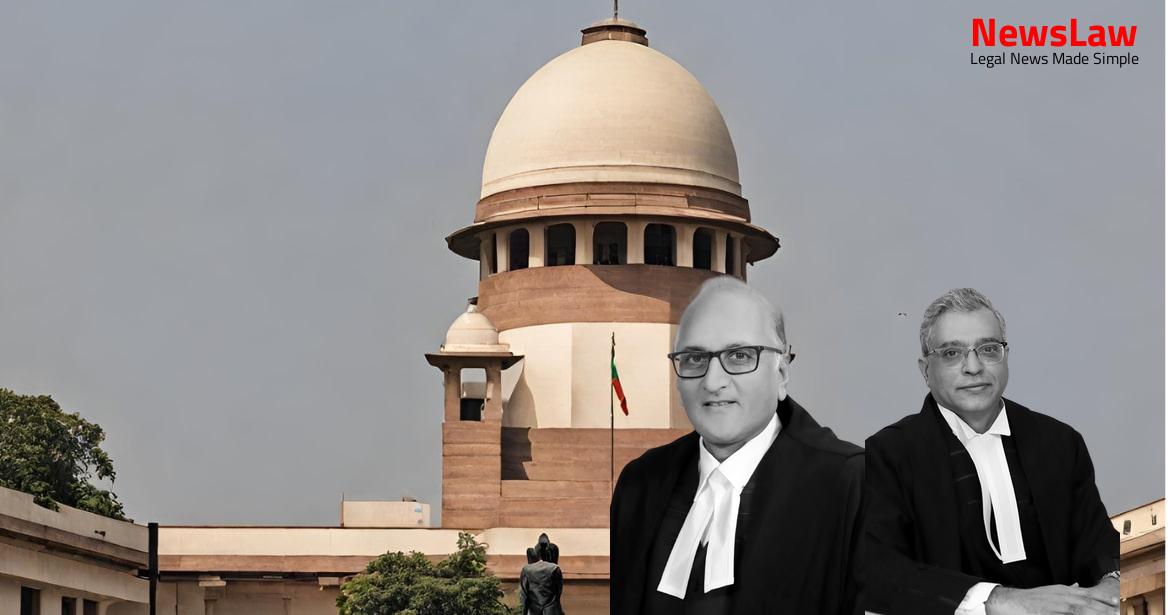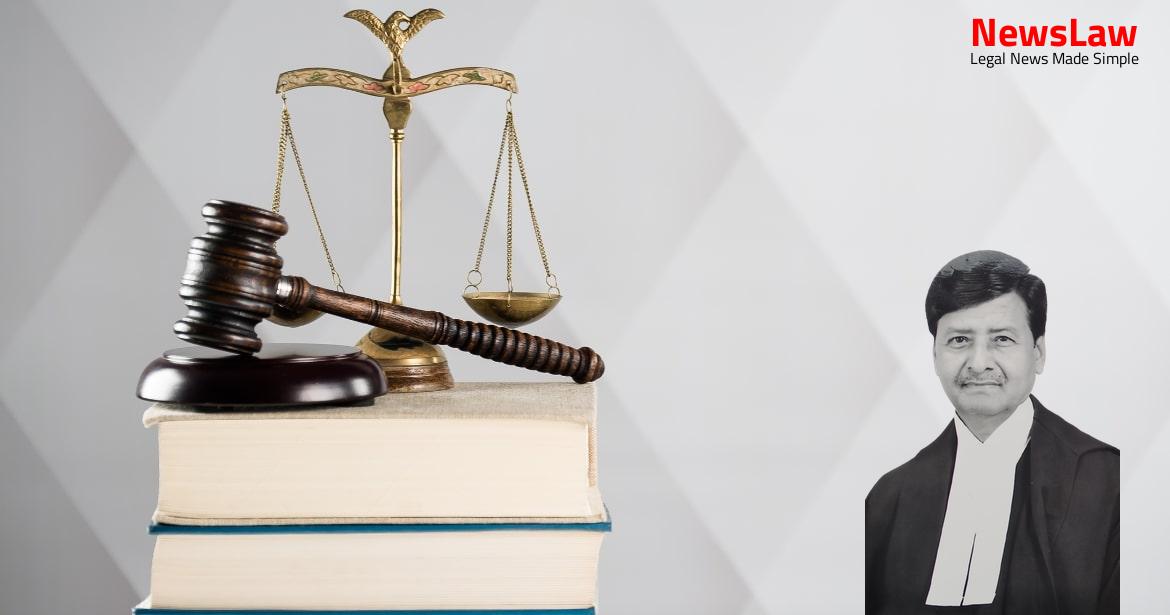Explore a detailed analysis of a legal case where the High Court’s decision to convict a defendant is fervently challenged. The focus is on the court’s legal reasoning and interpretation of relevant statutes, emphasizing the nuances of the law and its application in the case at hand. Stay tuned for a deep dive into the complexities of the justice system.
Facts
- The bag carried by the appellant was found to contain charas in the form of dhoopbati and balls.
- The appellant consented to being searched by the police party rather than waiting for a magistrate or gazetted officer.
- The appellant denied possession of any prohibited substance, claiming the charges were fabricated due to his refusal to contribute money towards a sports meet organized by the police.
- The charas found weighed 1 kg and 230 gms, with a resin content of 34.5%.
- A sample of 10 gm was extracted for chemical analysis, and the rest was sealed and seized with procedural formalities followed.
- The appellant was arrested, and the statement of Nam Singh (PW1), one of the independent witnesses, was recorded.
- Five witnesses were examined during the trial, including police witnesses corroborating the prosecution’s version.
- No defense evidence was presented, with the focus on highlighting contradictions in the police witnesses’ statements.
- The trial court’s judgment was overturned by the High Court.
- The prosecution’s case was deemed credible by the High Court.
- The High Court found that the information provided by the police prior to the arrest supported the prosecution’s version of events.
- Contradictions in witness statements were considered by the High Court but ultimately deemed immaterial.
- The High Court did not find the defense’s alternate theory to be convincing.
- The High Court re-evaluated all evidence on record before reaching its decision.
Also Read: Analysis of Suppression of Information in Employment Selection: Legal Perspective
Arguments
- The appellant has challenged the reversal of his acquittal by the High Court.
- The appellant’s counsel argued that the High Court exceeded its jurisdiction in setting aside the trial Court’s order.
- The sole independent witness disowned the prosecution case, making it unjustified to convict the appellant based on the police version.
- The contents of the reply dated 09.11.1994 were re-agitated to show that the case was not of chance recovery.
- It was argued that the reply being a court record did not need to be proved like a statement recorded under Section 161 of the CrPC.
- Leniency was requested due to the appellant’s advanced age and the low quantity of narcotics recovered.
- The State counsel supported the High Court’s judgment and opposed the pleas for acquittal and leniency.
- Conviction in such cases can be supported by testimonies of official witnesses even without corroboration by an independent witness.
- It was demonstrated that the trial Court had impermissibly relied on the reply document which was not brought forth during PW5’s cross-examination.
Also Read: Analysis of Cheating and Forgery in Passport Case
Analysis
- The High Court noted that the prosecution was not given an opportunity to controvert a reply document, and PW5 was not confronted with it.
- The sentence of two years’ rigorous imprisonment and a fine of Rs.50,000 was upheld in the interests of justice, considering the appellant’s age and circumstances.
- Weight of an admission depends on clarity, ambiguity, and relevance as evidence.
- The focus of the appeal should be on whether the trial court’s order was perverse and if the High Court’s conviction was based on cogent evidence.
- Lack of independent witnesses does not fatally impact the prosecution case.
- Courts need to be cautious about relying on evidence not confronted to the concerned witness.
- The High Court’s reasoning on the testimony of witnesses PW1 and PW5 was deemed solid.
- Justices under Article 136 usually review if principles were correctly applied, rather than re-appraising all evidence.
- The reliance on the prosecution’s reply to a bail application was considered as an admission but needed confrontation in cross-examination.
- The law on minimum mandatory sentence mandates no imprisonment less than ten years.
- Appellate courts can reconsider law and fact questions, and re-examine the entire evidence.
- The High Court’s jurisdiction against acquittal is not limited, and the CrPC empowers equal treatment for convictions and acquittals.
- Irrelevant material used for acquittal led to the justification of the High Court’s reversal of findings.
- The necessity for independent witnesses is secondary to the correctness of admission proofs as per the Evidence Act.
- There should be a balance in exercising power to ensure justice and the presumption of innocence.
- Findings of fact can be considered as perverse if relevant material is ignored or irrelevant material is considered
- Perverse findings of fact can also include decisions that are against the weight of evidence or suffer from irrationality
- Examples of perverse findings include errors of law, grave miscarriages of justice, and decisions that are clearly irrational
- Section 20(ii) of the NDPS Act, before the 2001 amendment, mandated rigorous imprisonment of not less than ten years but not exceeding twenty years along with a fine ranging from one lakh to two lakh rupees for contravention involving cannabis in forms other than ganja.
- After the 2001 amendment, Section 20(ii)(C) of the NDPS Act continues to impose a minimum ten-year sentence for possession of ‘commercial quantity’ of cannabis.
Also Read: Discrepancy in Date of Birth: Court’s Legal Analysis
Decision
- Total quantity in the instant case is 1 kg 230 gms
- Quantity exceeds the definition of ‘commercial quantity’ as specified in Notification S.O. 1055 (E), dated 19.10.2001
- High Court’s sentence was considered too charitable
- Appeals are dismissed
- Appellant’s bail bonds are cancelled
- Respondent-State directed to take appellant into custody to serve the remainder of his two years’ sentence
Case Title: RAVEEN KUMAR Vs. THE STATE OF HIMACHAL PRADESH (2020 INSC 606)
Case Number: Crl.A. No.-002187-002188 / 2011



